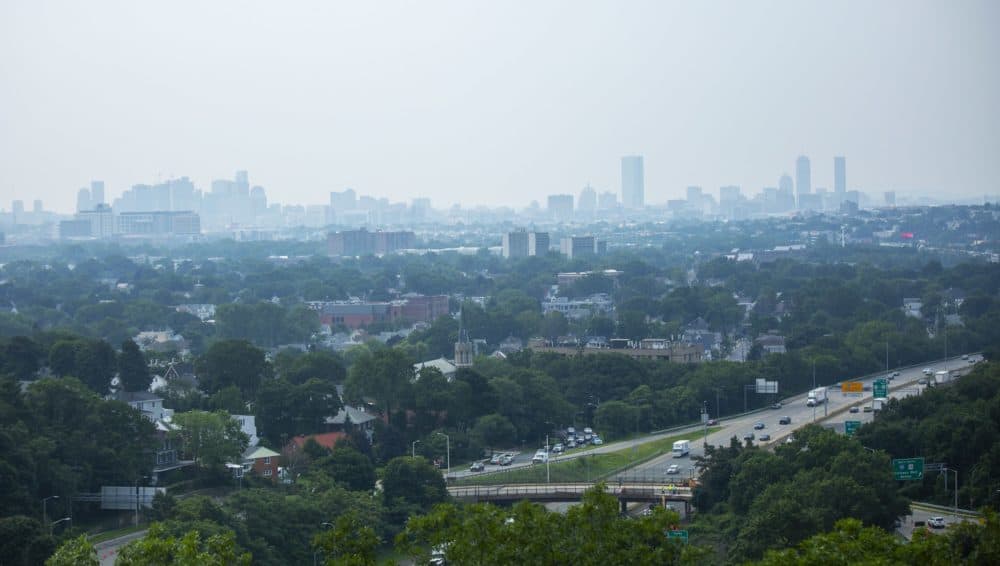Advertisement
What the UN's climate conference could mean for cities
Resume
The U.N. Climate Conference, also known as COP26, is getting underway in Glasgow. It is considered a critical moment to persuade countries to commit to ambitious goals to reduce greenhouse gas emissions.
Boston University professor Cutler Cleveland, the interim director of the BU Institute for Sustainable Energy, joined WBUR's Weekend Edition to discuss how the COP26 talks can impact Massachusetts.
Interview Highlights
On why this conference matters to Boston:
"The practical level is that cities, although they can do a lot — because they're very nimble, they control streets and building codes — but they can't do it alone. For example, reforming transportation networks requires both state and federal cooperation, so the cities need states and the federal government committed on an equal footing to make the larger, more costly changes happen.
"The practical level is that cities, although they can do a lot ... they can't do it alone."
"[On] the psychological and emotional level: It's very disheartening to live in a city like Boston, which is doing some great work on the climate front, to be confronted with a federal government that has had a very checkered past in committing to international climate targets and, in general, to see a global community where there's a lot of talk, but global greenhouse gas emissions continue to rise."
What does the goal of restricting warming to 1.5 degrees, instead of 3 degrees, mean for Boston:
"[Boston] has committed to becoming carbon neutral by 2050 as part of the city's joint alliance with many cities in the U.S., and the world, to try to do their part to reach that 1.5-degree target. For Boston, the biggest challenge to meet that target lies with our building stock since about two-thirds of the greenhouse gas emissions in the city comes from our more than 90,000 buildings. So that means making new buildings, so-called net-zero buildings, which the city has recently taken a big step toward with its new building ordinance. The bigger challenge is making all those old brownstones and older buildings built before 1950 more energy efficient, which requires costly and time-consuming energy retrofits. A lot of the tough to retrofit buildings in Boston — the households in those buildings are low-income, households of color, many of them have children and elderly non-English-speaking. All these are barriers to effective and equitable retrofit of these buildings. Ultimately, we need new ways of financing those retrofits because while over the lifetime of a building, those retrofits have a very positive return on investment, the problem is the short run, upfront cost."
On the challenge to get people to accept what needs to be done when we can't see the results in the short term:
"Cities and states and the federal government and corporations and all the other major decision-makers have to demonstrate how climate action has multiple benefits. The energy efficiency of buildings is a great example. When you make a building more energy-efficient, you improve indoor air quality, which improves overall public health. You also lower the utility bills for people who live in those buildings, which is very important for low-income households who often face the unfortunate decision of whether to pay a utility bill or put food on the table or defer medical expenses. Energy efficiency also creates jobs. You need a lot of firms and people out there doing this work, and properly constructed work programs could provide jobs for local residents as well. So the messaging has to include not just this sort of long-run, elusive goal of carbon neutrality, but also the short-run social benefits that accrue from these programs."
"We need new ways of financing those retrofits because while over the lifetime of a building, those retrofits have a very positive return on investment, the problem is the short run, upfront cost."
On the top things cities and states can do to reduce emissions:
"The biggest thing that's happening at the state level in Massachusetts and other states is pushing for clean electricity — that is electricity that comes from non-fossil fuel sources. So many states, including Massachusetts, have what are called clean energy standards, which require utilities that sell power in the state to every year, increase the fraction of renewable energy or other low carbon sources of energy, such as nuclear power in their mix of electricity. So this is steadily driving down the carbon intensity of electricity, and this is important for cities because many cities like Boston are requiring and pushing electrification of vehicles and of buildings — replacing natural gas or heating, for example, with heat pumps with electricity. But that only helps you move to carbon neutrality if the electricity itself is clean. So states and regional initiatives are doing a lot by making the grid cleaner."
This segment aired on October 31, 2021.

